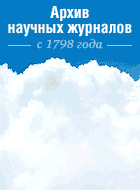Другие журналы
scientific edition of Bauman MSTU
SCIENCE & EDUCATION
Bauman Moscow State Technical University. El № FS 77 - 48211. ISSN 1994-0408
AUSTRALIA: Push to boost number of Aboriginal academic staff
11.09.2011
 Increasing the number of Aboriginal academic staff is a "pragmatic" way to boost knowledge of indigenous culture and knowledge in the sector, says Larissa Behrendt, the chairwoman of the federal government's review of indigenous access and participation in higher education.
Increasing the number of Aboriginal academic staff is a "pragmatic" way to boost knowledge of indigenous culture and knowledge in the sector, says Larissa Behrendt, the chairwoman of the federal government's review of indigenous access and participation in higher education. Professor Behrendt said the review would not get distracted by academic debates on the content and methodologies of indigenous knowledge.
"The terms of reference for this review has a clear focus on closing the gap, while the [one] that focuses on indigenous knowledge allows for an approach which is comprehensive," Professor Behrendt said.
"It avoids any complaints that we have only focused on the improvement of numbers and not other issues that are raised by the academy."
She said key questions for the review are how to increase indigenous staff numbers and better track the quality and quantity of research on indigenous matters.
"We are avoiding entering into the debates within the academy about the definition, content and methodologies of indigenous knowledge and instead are seeking to improve the engagement of the sector with indigenous academics and improve the quality of its research," she said.
In particular, Professor Behrendt said the review is examining the importance of having indigenous staff represented among the upper executive ranks of universities.
"We have had some strong advice from the sector that we shouldn't take a one-size-fits-all approach on this area. But we are clearly interested in how the introduction of indigenous representation in the upper executive is working in those institutions that have chosen to go down that path."
Indigenous staff are dramatically underrepresented in academe. Based on 2009 data, the number of teaching and research staff at 241 would have to more than treble to reach population parity. The number of indigenous research-only staff at 58 would have to rise by more than six times to reach parity.
The Indigenous Higher Education Advisory Council this year launched a strategy to increase indigenous employee representation in the sector to population parity within 10 years. It noted that the extent of under-representation was such that it couldn't be overcome by simply relying on any "pipeline effect".
On the challenge of boosting the participation of indigenous students in higher education, Professor Behrendt said: "We are absolutely aware of the challenge of school performance and retention rates and while reform of that sector is outside of the terms of reference of this review, we are considering what role the higher education sector can play in growing that pool.
"We don't take the view that overcoming this barrier to participation should be solely left to the school sector."
She said the review is looking at successful examples of the various enabling and mentoring programs universities run with schools.
The review is conferring with every university across the country to identify what is working and what is not. Noting that the Bradley review recommended specific targets for boosting the participation of students from low socioeconomic backgrounds, she said the review is doing some modelling on possibly setting indigenous student goals for the sector.
"The whole driver for this review was a concern that the figures weren't moving and that it seemed appropriate to have a rethink about whether policy, and where money is directed in the sector, were adequate to change that."
Source: The Australian
Photo: The Australian - Larissa Behrendt has been tasked to tackle the shortage of indigenous academic staff.
| Authors |
| Press-releases |
| Library |
| Conferences |
| About Project |
| Phone: +7 (915) 336-07-65 (строго: среда; пятница c 11-00 до 17-00) |
|
||||
| © 2003-2024 «Наука и образование» Перепечатка материалов журнала без согласования с редакцией запрещена Phone: +7 (915) 336-07-65 (строго: среда; пятница c 11-00 до 17-00) | |||||



